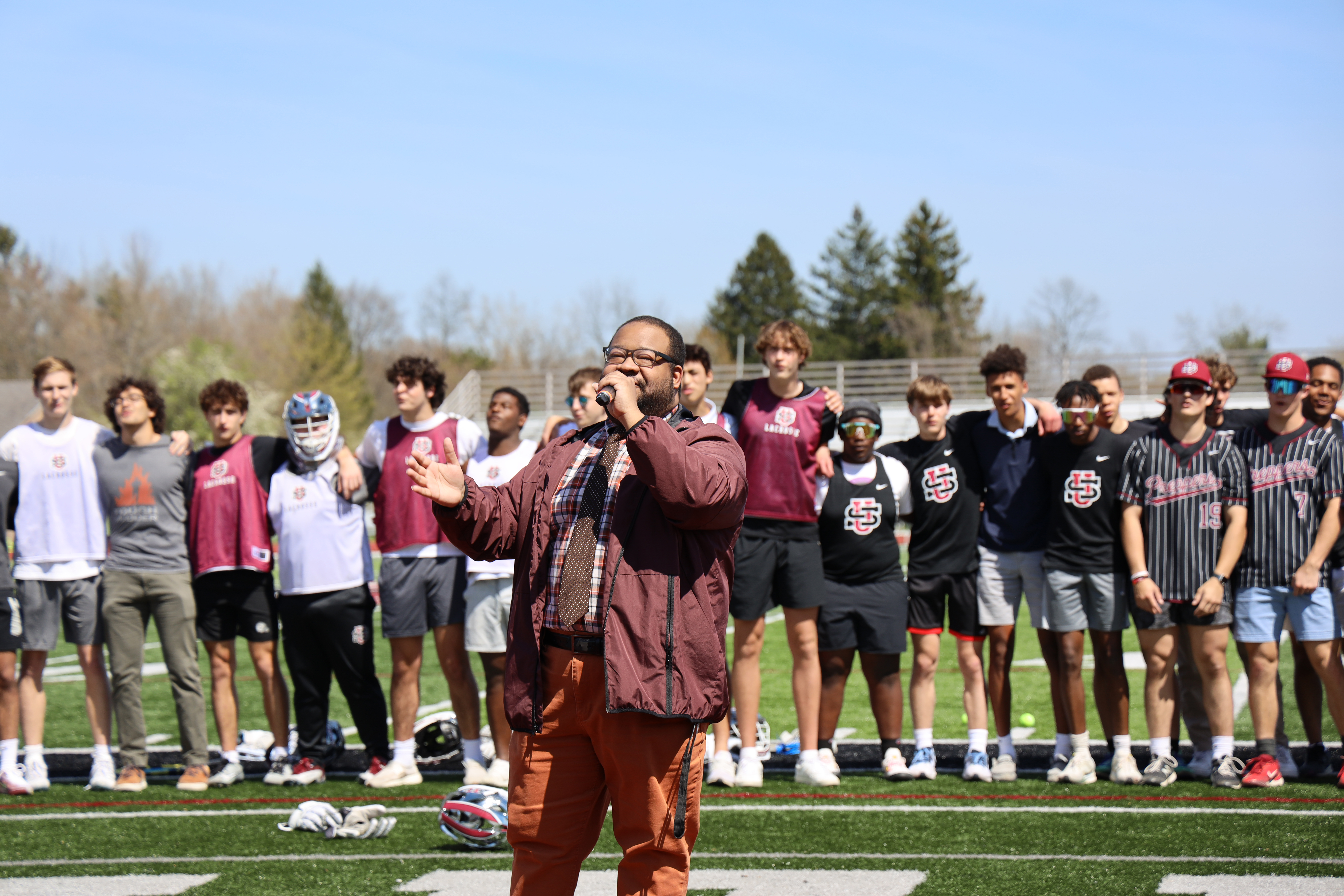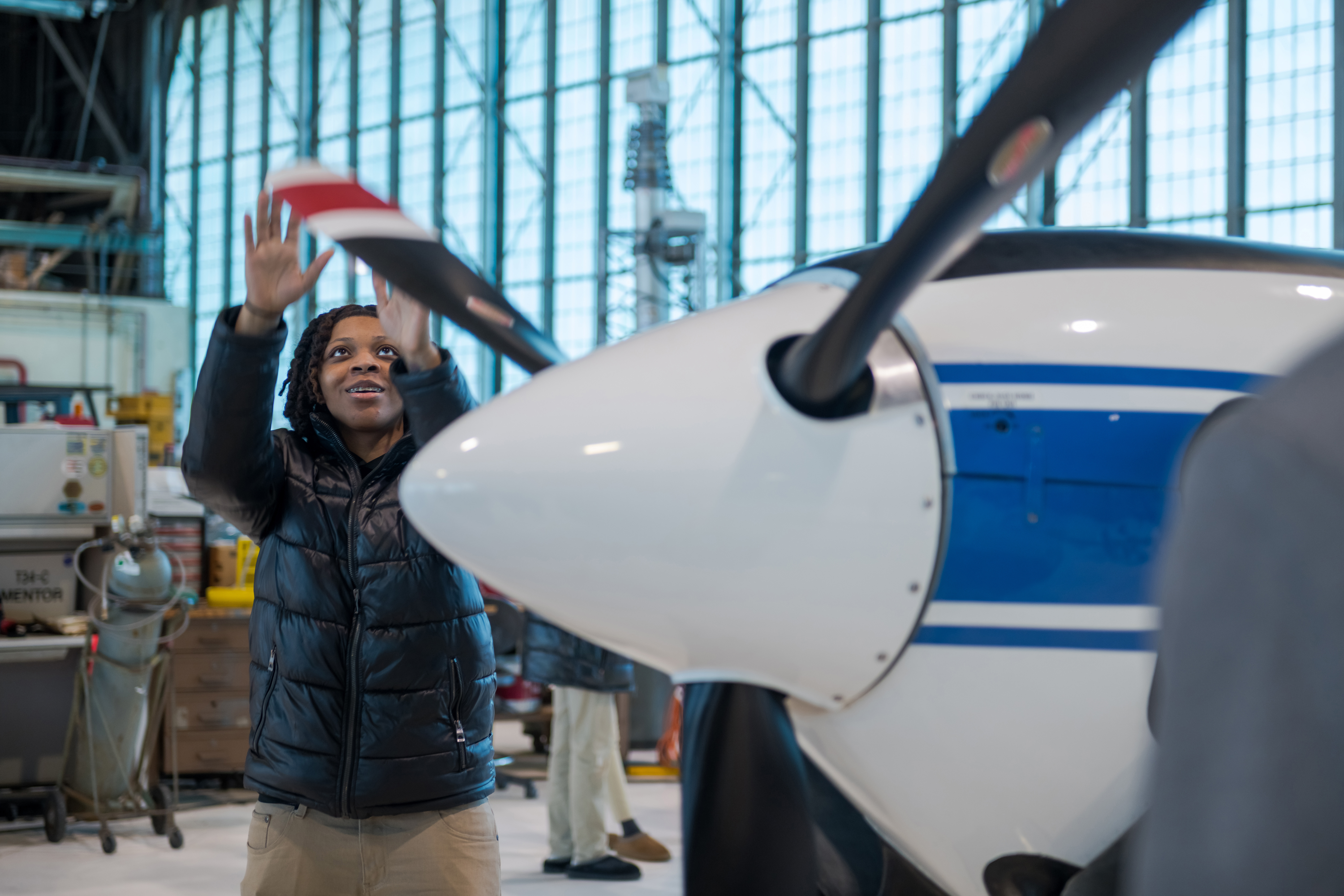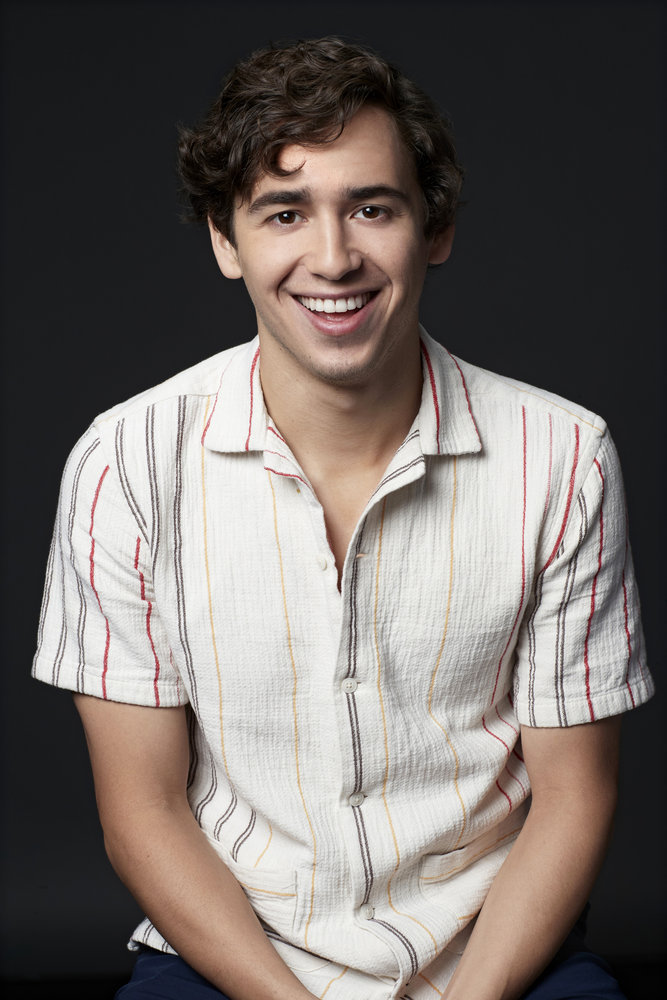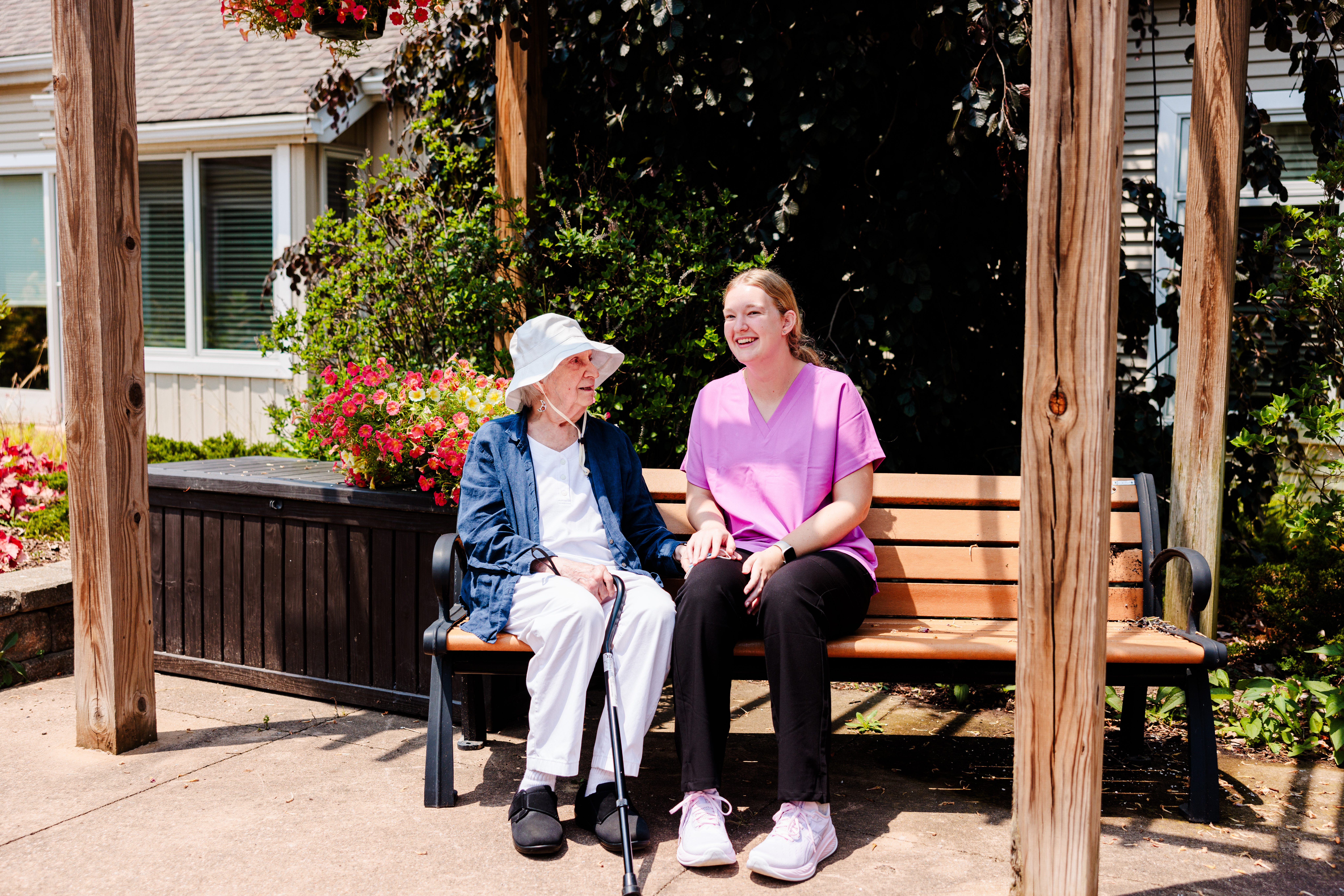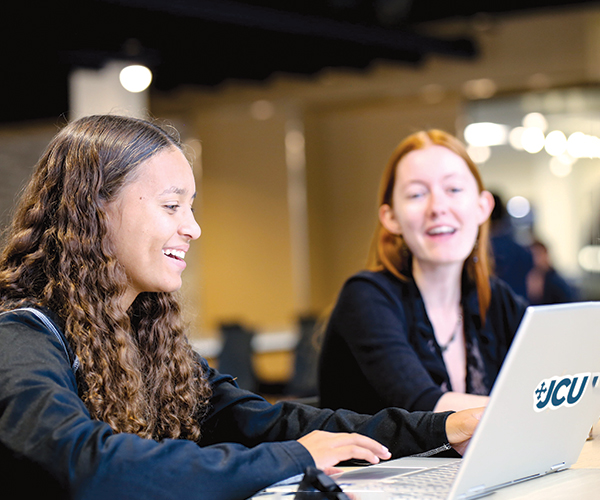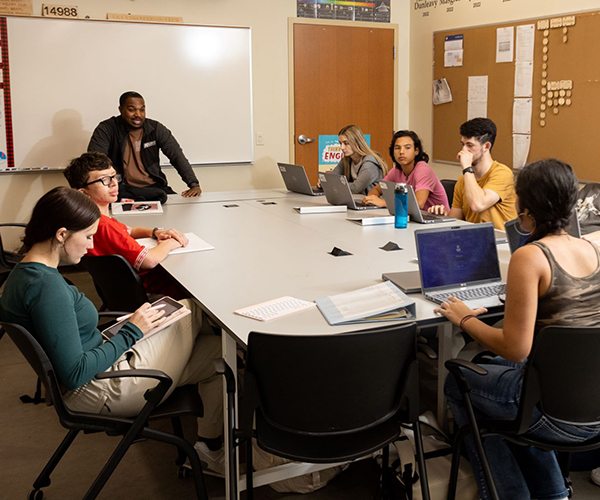Secrets of the Ivy League
Getting accepted into the Elite Eight is becoming tougher each year. And, Cleveland, we're not making the grade. So follow our experts' advice and Ivy might just be in your future.
by Kim Schneider | Aug. 31, 2006 | 4:00 AM
You’ve got good grades. Maybe you’re even the class valedictorian with stellar SAT scores. And there’s not enough space on your college applications to list all your activities.
You’re a shoo-in for an Ivy League school, right?
Cleveland Ivy hopefuls, this is your wake-up call: High school students nationwide are showing more initiative and passion, according to Robert Shaw, partner of Ivy Success, a New York-based company of former Ivy League admissions officers.
“Our feeling is that some kids in Cleveland just haven’t been as competitive relative to other kids across the country in terms of activities,” Shaw says. “It’s not good enough to be an average kid at an ultra-competitive high school. Colleges really want to get the best of the best. ... Cleveland is an area that is competitive, but needs a little bit more in terms of profile and aggressiveness.”
So, who’s doing the best getting their students into the nation’s most elite schools? Shaw says Hathaway Brown has been the most successful. The school has had 29 graduates attend Ivy League schools between 2004 and 2006. Hawken’s number of 17 in 2006 is similarly impressive.
Just how tough is it to get in? Very.
Nearly 4,000 students applied to Harvard for early action in 2005. Only 800 were accepted — 21 percent, the lowest of all the Ivy League schools. More than 2,800 were deferred and 149 rejected outright.
With such steep competition, it’s becoming increasingly difficult to snare your shot at an Ivy League education.
But it can be done.
To find out how, we consulted college counselors at local high schools, surveyed more than 30 current Ivy League students from Northeast Ohio and asked for inside advice from Shaw, who helps students get into Ivy League schools for a living.
And even if your sights aren’t set on the likes of Yale and Harvard, these ideas can be applied to any college, anywhere.
Don’t Wait
“In order to be successful at competitive college admissions, students need to start planning very early,” says Shaw, who, along with four partners, provides a range of assistance to students determined to get into an Ivy League school, from helping them choose a major to providing advice on essays, application and interviewing.
As early as the seventh grade, students can take the SAT to qualify for talented youth programs at prestigious universities such as Johns Hopkins University and Duke University, where they can begin taking courses to experience a variety of disciplines.
“This is when they pop on the radar screen,” Shaw says. “Colleges can have access to those scores and track the progress of prospective applicants at that time.”
The most critical juncture is eighth grade, when a student has to decide what high school to attend. Students should select the high school and the curriculum very carefully.
Nathan Cohen, a Hawken School and Cornell graduate, says a competitive high school is definitely a plus. “I feel the opportunities at Hawken, in terms of providing a collegelike atmosphere and great academics, really helped prepare me for the kind of work I would be doing at an Ivy League school.”
Pinpoint Your Passion
“What the colleges are looking for is commitment; it’s not a smorgasbord of activities,” says Mary Grimaldi, director of college counseling at Beaumont School. “It’s something that a student has a passion for and follows through on.”
It’s fine if students are involved in several activities, but they should look for leadership roles.
“Leadership can mean many things. It’s not just head cheerleader or captain of the football team,” says Michael Heeter, director of college counseling at Hawken School. “It’s how you have done within the context of what’s available to you, regardless of the position you held.”
Counselors agree that showing passion for an activity or group, whether it’s sports or the science club, can outweigh grades and test scores, even though those are still extremely important.
A kid can get admitted with a 3.7 GPA, says Keeon Gregory, director of college counseling at Lake Ridge Academy. “It really boils down to the uniqueness of the individual applicant more so than 4.0s and 1,600s.”
Cohen volunteered at Rainbow Babies and Children’s Hospital and Judson Retirement Community during high school to fulfill Hawken’s community-service requirement. “But I also volunteered to see if medicine was something I was interested in,” he says. He plans to apply to medical school this year.
So find an opportunity that fits you. As Heeter says, “There’s plenty of work to do in Cleveland.”
Seek Guidance
Visit your school’s guidance or college counselor so she can learn about — and market — you.
Thirty percent of private school graduates who went on to Ivy League colleges met with their guidance or college counselors at least three to four times a year, according to a Cleveland Magazine survey of more than 30 current Ivy League students from Northeast Ohio. Twenty percent met five to six times and another 20 percent met seven or more times.
At Beaumont, everything ÂÂduring the first two years — from course selection to discovering what a student enjoys — is “geared toward making them into competitive candidates,” says Grimaldi.
Counselors, who help with applications and write letters of recommendation, can be a great promoter. “I really try to bring the student to life as best as possible,” she says. “I pull everything together.”
Also, counselors know the colleges and can help find ones best suited to you.
“We work really hard to get students to discern among Ivy League schools,” says Heeter. “They’re all very different from each other and bring different things to the table.”
Visit the school’s Web site, talk to students and find out its culture and well-regarded disciplines.
Flex Your Brain
Most schools in Northeast Ohio only offer Advanced Placement classes to juniors and seniors.
“Nationally speaking, that is not competitive because there are kids who are taking very advanced, very aggressive courses throughout high school,” Shaw says. Some schools start AP work as early as freshman year.
More than 80 percent of students surveyed took four to six Advanced Placement classes during their high school career. But if AP courses aren’t available at your high school until junior year, consider college-level courses at local community colleges or state schools to keep up with your peers nationwide.
“You have to show colleges that you went above and beyond available local resources to pursue your love of learning,” Shaw says.
So expect to put in a lot of work. Seventy-one percent of students surveyed spent about seven to nine hours a week in high school on homework or studying. Students also need to think about SAT preparation.
“Do not wait until junior year to get your test prep going,” Shaw says. “Kids should work on test prep at least a full year before they take an official test.”
Since it’s recommended to take the test no more than three times, being prepared is paramount.
Hit the Road
Visit campuses. Even though most of the Ivy League schools are on the East Coast, it’s still important for you get a feel for what college life would be like at Columbia or Cornell.
“During spring break of my junior year, I went on a tour of colleges on the East Coast,” Cohen says. “That’s when I basically made up my mind.”
Abby Murphy, a graduate of Laurel School who is now a junior at Yale, remembers visiting the New Haven, Conn., campus when she wasn’t even thinking about colleges.
“We just drove around and didn’t take an official tour,” she says. “I hated it.”
While the campus looked beautiful, she had no real sense of what campus life would be like. But she didn’t exclude the school completely. It took a another trip during high school and an actual campus tour before she was finally sold.
“I got to hear about Yale from a student’s perspective, and that helped a lot,” she says. “I definitely wouldn’t have thought about Yale if I didn’t visit again.”
She applied for early action and, once accepted, didn’t send out any more applications. Yale was where she wanted to go.
“The visit is critical,” says Gregory. “It’s good for them to eliminate or for affirmation that this is a place they would like to be.”
Make Your Mark
“The essay is the final piece of the application that summarizes your past four years — your candidacy down on paper,” Shaw says. “It’s an integral part of the applicant’s profile, and it needs to reflect the right message to admissions officers.”
Take admissions officers into consideration. Do research on who the admissions officer is. Most schools have an officer who focuses solely on Ohio or even just Northeast Ohio.
Also, think about what other kids would write in their essays.
“If you’re the captain of the football team and you write an essay that talks about triumph over adversity, although that may be significant to you, other football players will be able to write the exact same thing,” Shaw says.
Additionally, consider your tone and voice depending on whether the school is liberal or conservative.
“The average college counselor is going to be reading 500 to 700 applications, so we want it to stand out,” Gregory says.
And definitely write an individual essay for each college.
“How many schools can you be passionate about and love?” asks Gregory. “Counselors can tell just from the flow of the page how sincere the application is or if this just another kid trying to get in.”
Use a personal experience that either taught you something or gave you a new perspective on life.
Murphy, a history major, wrote her essay to Yale about reading the diaries of an affluent woman who lived on Millionaires’ Row in the 1880s at the Western Reserve Historical Society.
“It seemed like it was something that really made me stand out,” Murphy says. “It showed that I had a special interest in history and that I pursued that interest in going to the [WRHS] library.”
Yale has a strong history program. After reading her essay, the admissions officer thought Murphy would be an asset to it.
The Alumni Factor
Most of the Ivy League schools offer applicants the chance to meet with local alumni for an interview. Even though most interviews are optional, you should go through with them.
“It puts a person with an application,” says Grimaldi, “and some students come off very well in an interview.”
The alumni report back to the admissions officers, who then can lobby for a student based on the interview as the committee makes its decision, adds Gregory.
Be Realistic
More than 50 percent of private-school students who went on to attend Ivy League schools applied to five or more colleges, according to our survey of Northeast Ohio grads who went on to the Ivies. But counselors say it becomes hard to convince admissions officers that you feel a connection with their school when you are applying to multiple places.
Grimaldi suggests compiling a list of possible schools during your sophomore or junior year.
“When I start out working with them, we have a list of 12 to 15 schools,” she says. “By the time they come back in August, they should narrow down that list to three to five schools.”
Cohen says he knows of other students who’ve applied to many as 25 schools. A valedictorian, Cohen applied to all the Ivy League schools except Princeton. He applied for early action to The University of Michigan and Harvard and was deferred, then waitlisted at Harvard. The same thing happened at Yale, Dartmouth and The University of Pennsylvania. He didn’t even get into Columbia. But he was accepted at Cornell, Brown, Michigan, Northwestern and Wesleyan University.
“I think it’s a combination of working really hard and being lucky,” he says. “I got into the same number of places I didn’t get into.”
Keep in mind that there is no way to predict who will get in.
“I’ve been doing this a long time, but there’s no way I can always know who will admit you,” Heeter says. “Or what they are going to focus on when they evaluate the student.”
Gregory suggests applying to two “dream” schools, two schools that are matches in terms of aptitude and grades and two schools that you could get into without a lot of difficulty.
“At Princeton, for example, out of 16,000 applications, 5,000 were valedictorians and salutatorians,” Gregory says. “Only 800 of those kids were admitted.”
What Not To Do
Getting accepted is hard. Don’t resort to corny tricks, such as mailing cupcakes to the admissions staff or submitting a 10-minute videotape of yourself (it worked in “Legally Blonde,” but it won’t for you). And don’t make blunders because you’re rushed.
“Students make the mistake of not changing ‘Yale’ to ‘Harvard,’ or ‘Harvard’ to ‘Princeton,’ on the application,” Gregory says. “It happens more than you can believe.”
And when it comes to essay writing, be sure you think long and hard about the topic.
“Steer clear of topics that are inappropriate or extremely risky,” Shaw says. “If you have very strong political opinions or strong beliefs on an issue and the person reading your folder is on the opposite side in terms of his or her point of view, you are at risk.”
Shaw advises parents who want to be closely involved in this process to look at this through the eyes of an admissions officer, not a parent.
“Each parent thinks their child is exceptional and bright and should get into Harvard,” he says.
Also, think about how you will come across on paper through your essay and application.
“Realize that even if you are at the top 10 percent of your class there’s hundreds of high schools in the country,” Cohen says. “For every you, there are 100 other people.”
| Terms You Need to Know
Profile: A 360-degree view of the applicant from all sources. Everything in the application folder is read in a specific order, so an admissions officer will have an understanding of the applicant from the perspective of family background, testing abilities, academics, teacher feedback, school feedback and what the applicant provides in terms of essays and personal information. Early action: Students submit applications by November of their senior year and are notified by January or February. This process is “nonbinding,” so accepted students can choose whether to attend. Single-choice early action: Works similar to other early-action plans, but students may not apply early to any other school. Students can still apply regular decision to other schools. Deferred: Colleges have not completed their review of an application either because they would like to see grades from a student’s senior year or new test scores, so the college will wait to make a formal decision once new information is provided. Waitlisted: Students are placed on this list and might possibly be accepted if spots to enroll become available. |
Trending
-
1
-
2
-
3
-
4
-
5

